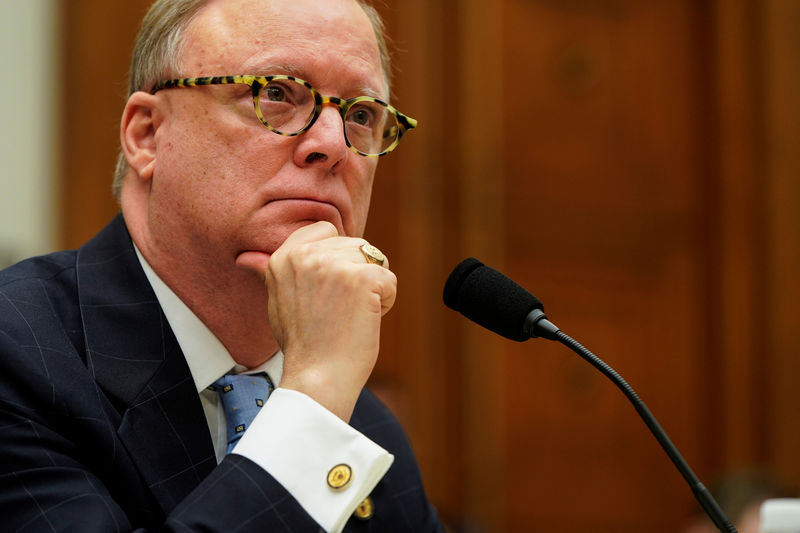By David Shepardson
WASHINGTON (Reuters) - U.S. National Transportation Safety Board chairman Robert Sumwalt told Congress on Wednesday his agency would outline recommendations on the Federal Aviation Administration's airplane design certification procedures by late September.
Sumwalt said in March that the agency was "examining the U.S. design certification process to ensure any deficiencies are captured and addressed" after two fatal Boeing (NYSE:BA) 737 MAX crashes.
Sumwalt told a Senate hearing on Wednesday that NTSB staff were now "working on a recommendation package that I would suspect we would have out in the next 60 days regarding design certification issues." The NTSB will have to vote to adopt the recommendations.
Boeing’s best-selling jet, the 737 MAX, was grounded globally in March following the crash of an Ethiopian Airlines flight that month and a similar Lion Air disaster in Indonesia in October. The two crashes killed 346 people.
Since the twin disasters, a host of government agencies and outside experts have been investigating how the FAA certifies new aircraft and its longstanding practice of delegating certification tasks to airplane manufacturers, including federal prosecutors, the Department of Transportation's inspector general, Congress and several blue-ribbon panels.
Deputy FAA Administrator Dan Elwell told Congress in March that the U.S. aviation regulator would have to spend $1.8 billion and hire 10,000 new employees to handle all aircraft certification internally.
Michael Perrone, who heads the Professional Aviation Safety Specialists union, said at a House hearing last week that external entities designated by the FAA "are now performing more than 90 percent of FAA’s certification activities despite serious concerns that oversight is lacking."
He added that this "creates a concerning dynamic whereby designees who are paid by the aircraft manufacturers, airlines, or repair stations are simultaneously overseeing for the FAA. Why allow individuals and companies outside the agency to perform work with the ability to impact the safety of the aviation system?"
Elwell has repeatedly defended the FAA's certification process, but criticism has continued to mount.
Former airline pilot Chesley "Sully" Sullenberger, who in 2009 landed a US Airways flight safely on the Hudson River in New York, told a congressional panel in June that the U.S. system of certifying new aircraft is not working.

"Our current system of aircraft design and certification has failed us," he said.